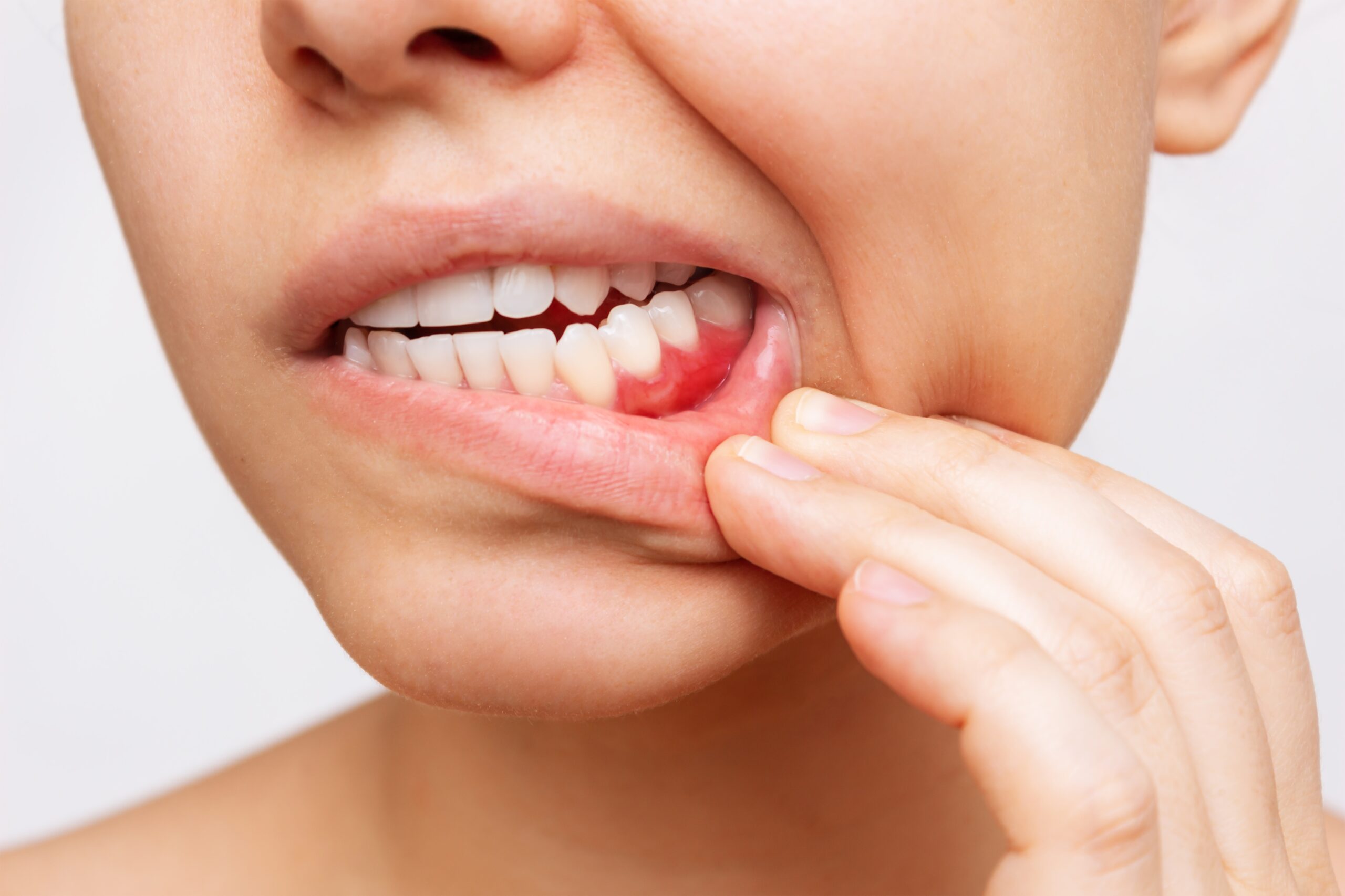Mouth sores are common, and while many go away on their own, they can sometimes interfere with daily activities like eating, drinking, or speaking. A small sore might not seem like a big deal at first—but if you’ve ever dealt with a painful canker sore that sticks around for several days, you know how uncomfortable it can become.
Most minor mouth sores heal without treatment, but persistent or recurring sores could be a sign of an underlying condition that needs professional attention. Knowing when to monitor and when to seek care is an important part of maintaining your oral health.
What Are Canker Sores?
Also known as aphthous ulcers, canker sores are shallow, painful ulcers that form on the soft tissues inside your mouth. You may notice them:
- The inside of your cheeks or lips
- Under or on the tongue
- The soft palate (the back of the roof of your mouth)
They are less common on tougher surfaces like your gums.
These sores usually start with a tingling or burning sensation and then develop into a small, round ulcer with a grayish center and red border. They can appear during times of stress or after minor mouth trauma, like accidentally biting your cheek or brushing too hard.
How Long Do Canker Sores Last?
Most canker sores heal on their own within 7 to 14 days. The more intense the sore, the longer it may take to feel better.
What Causes Canker Sores?
While there’s no single known cause for canker sores or RAS, several factors may play a role:
- Immune system response
- Vitamin deficiencies (B12, iron, folate)
- Gastrointestinal issues (such as Crohn’s or celiac disease)
- Acidic or spicy foods
- Sodium Lauryl Sulfate (SLS) in toothpaste
- Hormonal changes or stress
- Genetics
- Smoking cessation
What Is Recurrent Aphthous Stomatitis (RAS)?
If you find yourself getting canker sores regularly, you might be experiencing a condition called Recurrent Aphthous Stomatitis (RAS). This common condition affects up to 1 in 4 people, often starting in adolescence and running in families. Women tend to experience RAS more than men.
Some people get just one sore at a time, while others may get painful clusters or larger ulcers that take longer to heal. RAS isn’t contagious, but it can seriously affect your comfort and quality of life.
At-Home Canker Sore Treatments
Many mild cases of RAS can be managed at home. Over-the-counter products may help:
- Protect the sore
- Numb the area temporarily (for pain relief)
- Reduce pain and inflammation
If symptoms are severe or persistent, your dentist or doctor may recommend prescription treatments, including:
- Topical steroid gels or rinses
- Systemic medications
- In-office treatments (like laser therapy or steroid injections)
The goal is to minimize pain, reduce frequency, and help your mouth heal faster.
Medical Treatment for Severe or Frequent Sores
See a dentist or doctor if:
- Sores last longer than 2 weeks
- You have frequent flare-ups
- Pain is severe or worsening
- You have other symptoms (fever, fatigue, swollen glands)
In some cases, a biopsy or blood work may be needed to rule out underlying medical issues like immune disorders, skin conditions, or even signs of oral cancer.
Tips to Reduce Canker Sores
You can’t always prevent sores, but these habits may help reduce frequency and severity:
- Brush and floss gently, using an SLS-free toothpaste
- Get enough vitamins B12, iron, and folate
- Manage stress through exercise, meditation, or rest
- Avoid food triggers like citrus, hot sauce, and sharp snacks
- Stay hydrated and eat a balanced diet
- Keep a food and symptom journal to identify patterns
When to Take Action
If sores persist, worsen, or are accompanied by other symptoms, it may signal a deeper issue—such as an autoimmune condition or even early signs of oral cancer. Don’t ignore chronic or worsening sores. A quick evaluation can bring answers and relief. If you’re experiencing any symptoms or have questions, schedule a live video call with a Dentistry.One dentist today.




